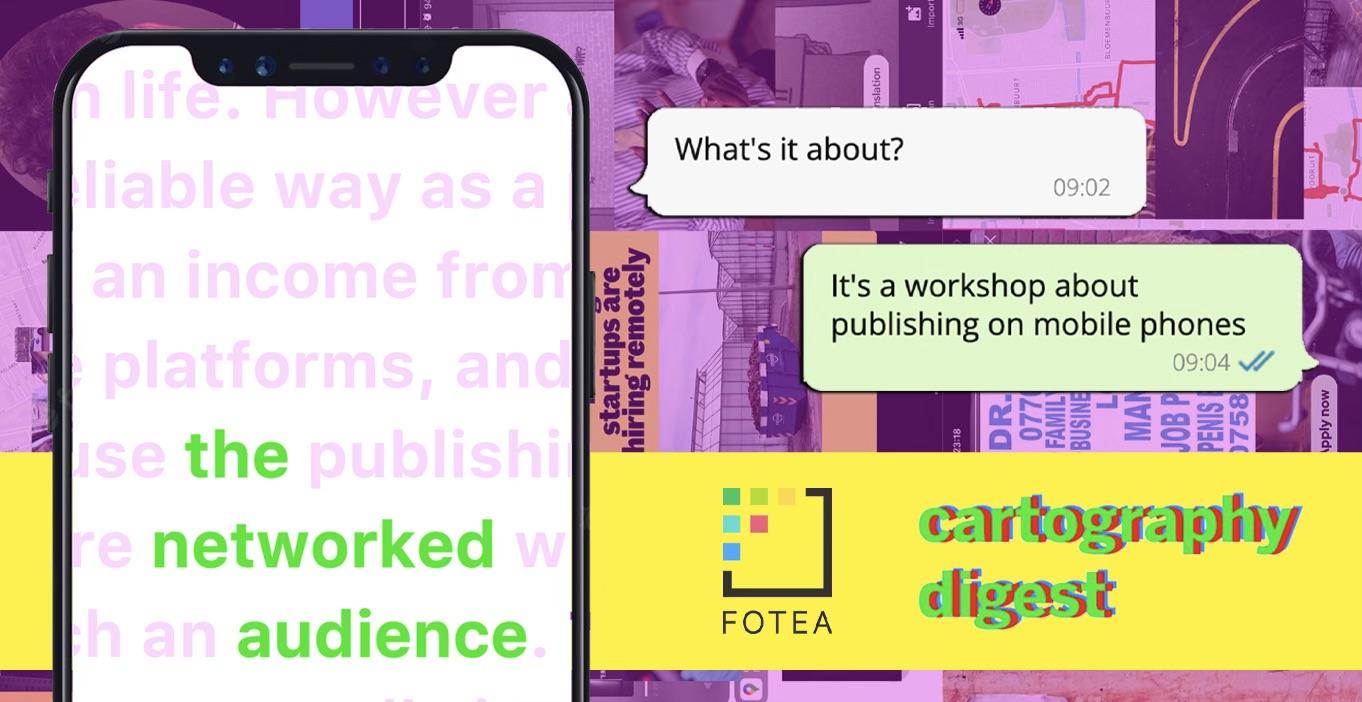News
The Networked Audience
uganda press photo award
Sep 16, 2022
Even though almost every photograph we now see arrives through the screen of a mobile phone, these devices remain absent from discussions about the future of professional photography. In this innovative new workshop series FOTEA and Cartography Digest will convene a group of Uganda’s most creative minds to discuss and experiment with new ways to publish images and explore the possibilities presented by these devices.
Overview
Smartphones are the most common means of display for photography in modern life. However at present there is no reliable way as a photographer to make an income from publishing on mobile platforms, and most photographers use the publishing platforms contained within the screen only as promotional tools for their work. Projects must exist elsewhere, usually in physical print, in order to be perceived as having value. Anything published on social networks is remediated by algorithms designed (usually in the global north) to maximise engagement and thus revenue, none of which is shared with the photographer themselves, while circulating work outside of these networks is difficult and restrictive.
This underlying situation is unlikely to change any time soon. Mobile phones are getting more important, not less, while legacy media is steadily losing relevance particularly in terms of revenue models for content producers. If photographers are to survive we must evolve our business models to reflect this shift, focusing less on making money from the sale of our images and more from their consumption and specific value to owners.
This sounds negative, but it’s more of a statement of facts. There are also exciting opportunities emerging- these glowing little rectangles of glass open up a whole new world of audiences, uncontrolled by gatekeepers. LCD screens are full colour and high resolution, and for the cost of a few megabytes of data traffic a reader may access anything ever published anywhere. Already we are seeing great innovation in the mobile publishing world, with outlets like The Continent developing huge new audiences as a result of strategies which treat the mobile phone as a legitimate avenue for publishing.
Uganda is uniquely positioned for a discussion about this new frontier and its opportunities and costs, because the domestic photography industry is relatively underdeveloped and so doesn’t have the bad habits often seen in older, more established markets. That is why we would like to invite you to join us for a series of discussions and workshops addressing this shift and discussing how we, as cultural producers operating in the African and global digital context, can use these new opportunities in exciting ways.
This underlying situation is unlikely to change any time soon. Mobile phones are getting more important, not less, while legacy media is steadily losing relevance particularly in terms of revenue models for content producers. If photographers are to survive we must evolve our business models to reflect this shift, focusing less on making money from the sale of our images and more from their consumption and specific value to owners.
This sounds negative, but it’s more of a statement of facts. There are also exciting opportunities emerging- these glowing little rectangles of glass open up a whole new world of audiences, uncontrolled by gatekeepers. LCD screens are full colour and high resolution, and for the cost of a few megabytes of data traffic a reader may access anything ever published anywhere. Already we are seeing great innovation in the mobile publishing world, with outlets like The Continent developing huge new audiences as a result of strategies which treat the mobile phone as a legitimate avenue for publishing.
Uganda is uniquely positioned for a discussion about this new frontier and its opportunities and costs, because the domestic photography industry is relatively underdeveloped and so doesn’t have the bad habits often seen in older, more established markets. That is why we would like to invite you to join us for a series of discussions and workshops addressing this shift and discussing how we, as cultural producers operating in the African and global digital context, can use these new opportunities in exciting ways.
About the Workshop Partners
Cartography Digest is an experimental visual platform aiming to stretch the boundaries of photography and map new territories.The founders, who are visual artists and researchers, want to provide a space where the tropes and clichés of photography, the practices of circulation, accessibility and representation can be discussed. Their main goal is not to explore what photography is, but what photography can do. They promote alternative views, counter-practices and unpopular opinions that could shift the focus and transform the dominant media narratives. By experimenting with different practices we aim to act as catalysts for a greater collective change through collaboration, solidarity and care.
Will Boase is a photographer and writer based between Kampala and The Hague. He has worked extensively for the international press and his images have been published around the world. He recently graduated from the Royal Academy of Art’s Photography and Society MA, where his research focused on rethinking the relationship between makers and audiences in the age of digital reproduction.
3,996

